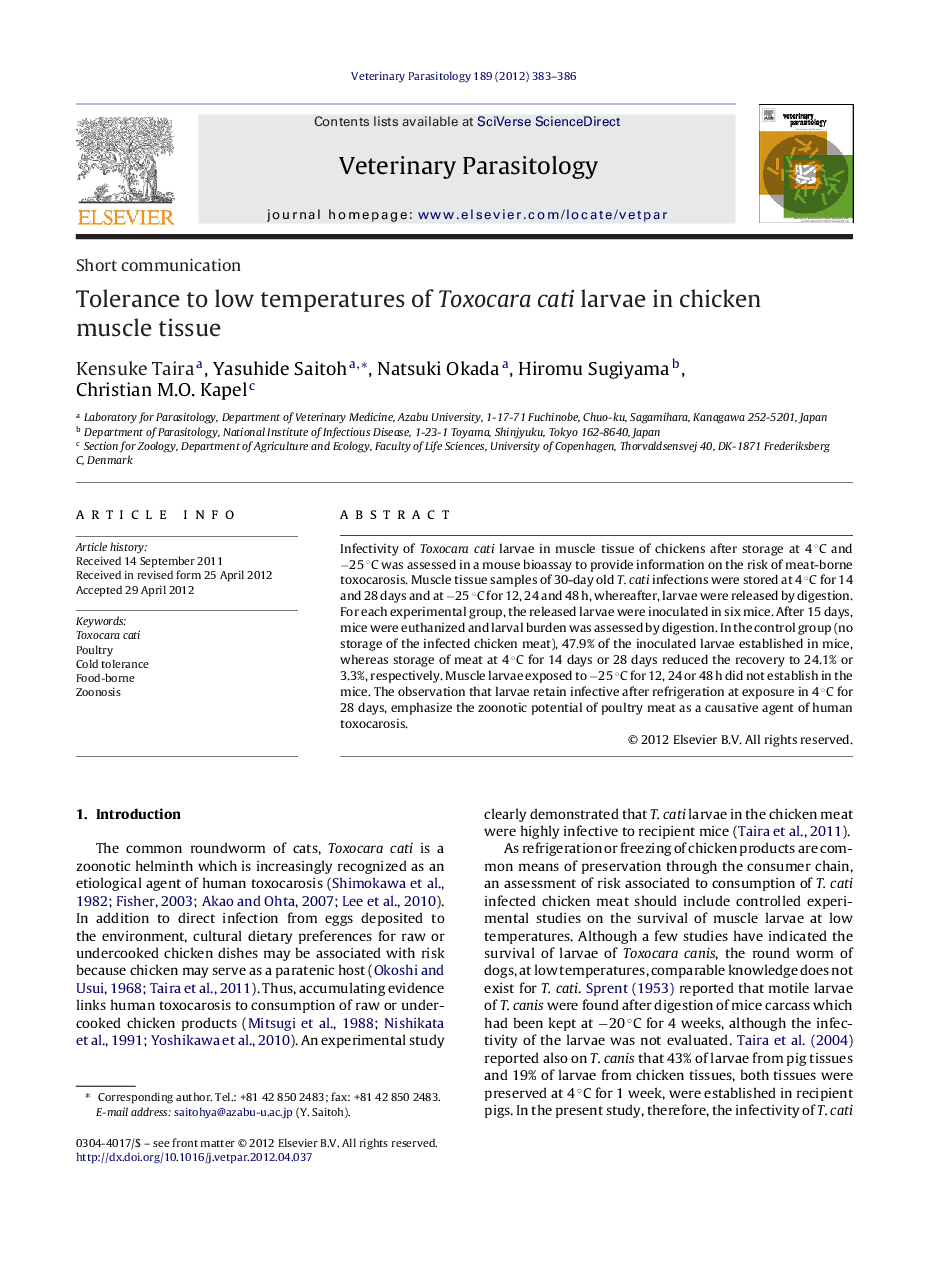| Article ID | Journal | Published Year | Pages | File Type |
|---|---|---|---|---|
| 5804877 | Veterinary Parasitology | 2012 | 4 Pages |
Infectivity of Toxocara cati larvae in muscle tissue of chickens after storage at 4 °C and â25 °C was assessed in a mouse bioassay to provide information on the risk of meat-borne toxocarosis. Muscle tissue samples of 30-day old T. cati infections were stored at 4 °C for 14 and 28 days and at â25 °C for 12, 24 and 48 h, whereafter, larvae were released by digestion. For each experimental group, the released larvae were inoculated in six mice. After 15 days, mice were euthanized and larval burden was assessed by digestion. In the control group (no storage of the infected chicken meat), 47.9% of the inoculated larvae established in mice, whereas storage of meat at 4 °C for 14 days or 28 days reduced the recovery to 24.1% or 3.3%, respectively. Muscle larvae exposed to â25 °C for 12, 24 or 48 h did not establish in the mice. The observation that larvae retain infective after refrigeration at exposure in 4 °C for 28 days, emphasize the zoonotic potential of poultry meat as a causative agent of human toxocarosis.
